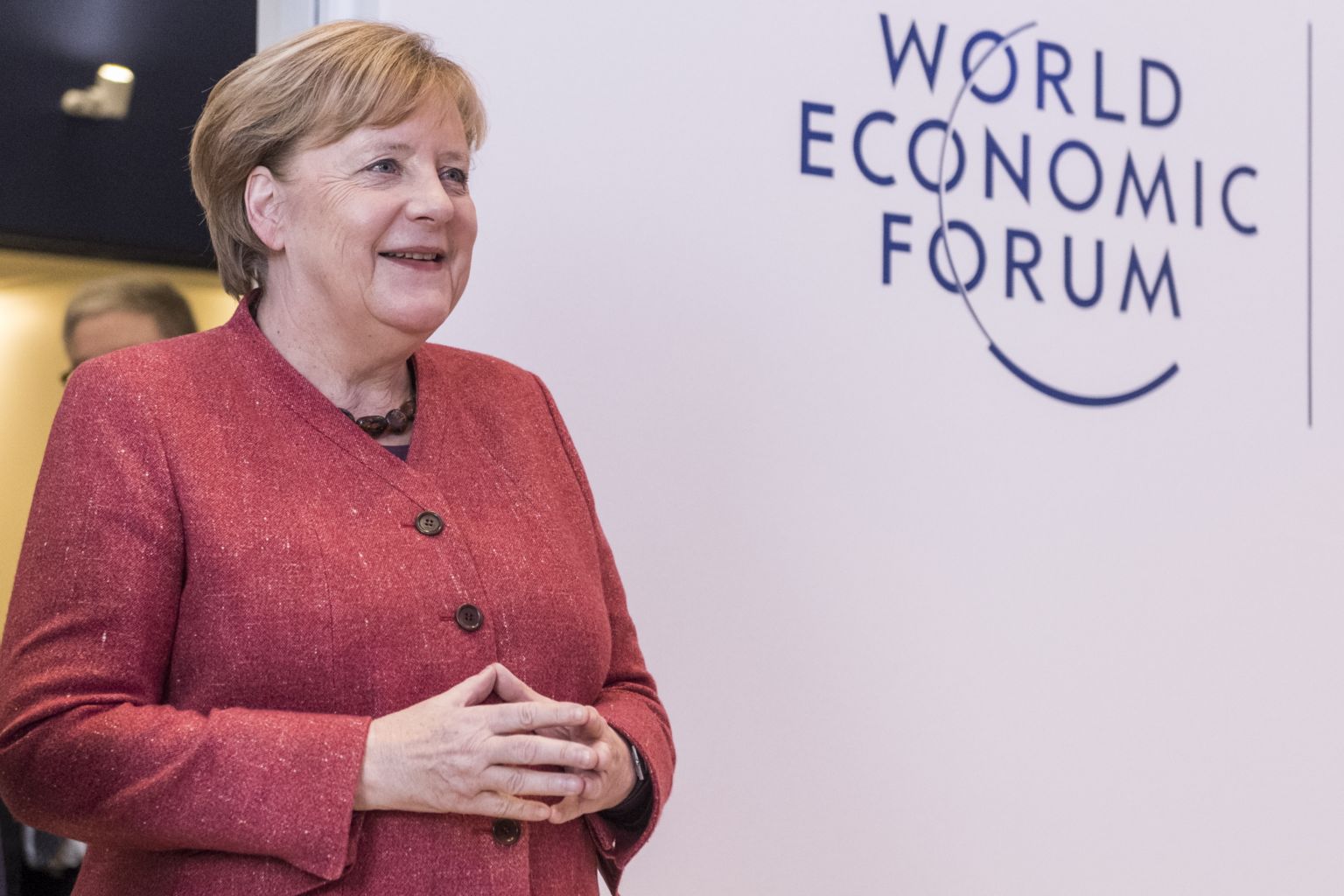Merkel says climate fight may be a matter of survival for the world
Sign up now: Get ST's newsletters delivered to your inbox

German Chancellor Angela Merkel said the world needs an open dialogue to heal the gap between sceptics and believers since time is running out to cut the emissions that drive global warming.
PHOTO: EPA-EFE
Follow topic:
DAVOS (REUTERS BLOOMBERG) - It is important to have open dialogues as climate changes may be a matter of survival for the world, German Chancellor Angela Merkel made this point in her special address at the World Economic Forum on Thursday (Jan 23).
On climate change, she said the world needs an open dialogue to heal the gap between sceptics and believers since time is running out to cut the emissions that drive global warming. "Time is pressing, so we - the older ones, I am 65 years old - must make sure that we take the impatience of young people positively and constructively," she said in a special address at the World Economic Forum in Switzerland.
The first two days of the annual Davos gathering were dominated by the back-and-forth between the 73-year-old former businessman Trump and 17-year-old campaigner Greta Thunberg, with corporate leaders caught in the middle, concerned that there was a need for concrete decisions.
She drew applause from the Davos audience when she said opposing sides in polarised debates such as that on climate change had to learn how to talk with each other again.
She noted that Europe's rising to the challenge of meeting its international climate pledges may be a question of survival for the continent. In 2020, Europe and beyond faces a "decade of action," she said in her speech, citing a comment from Secretary General Antonio Guterres of the United Nations.
Fulfilling Paris Climate Accord pledges "may turn out to be a matter of survival," said the German leader. Global leaders should listen to young voices that are campaigning for more trenchant policy to counteract global warming, she said .
The "impatience of young people" must be addressed, she said. "We are required to act accordingly."
Chancellor Merkel is making climate policy a focus of her last full year in power as German leader. In the wake of mass protests over the past year, her administration sought to kick start her stalled climate agenda with a series of measures to help get Germany on track to achieve a steep cut in carbon emissions.
Germany, which is Europe's biggest emitter of greenhouse gases, is lagging in meeting those targets. It aims to cut emissions 40% by this year compared with 1990 levels yet needs to close a big gap to get there.
The moves include placing levies on transportation, investing heavily in railways and applying a timetable for power companies to exit coal. Yet critics say the measures are too little and too late, and that tax payers ought not to be paying billion-dollar compensations to utilities.

